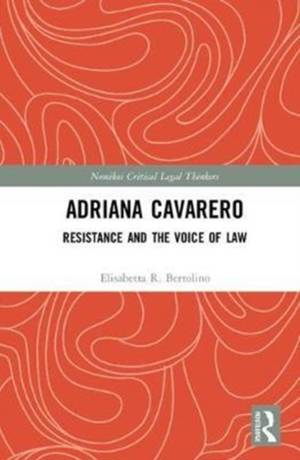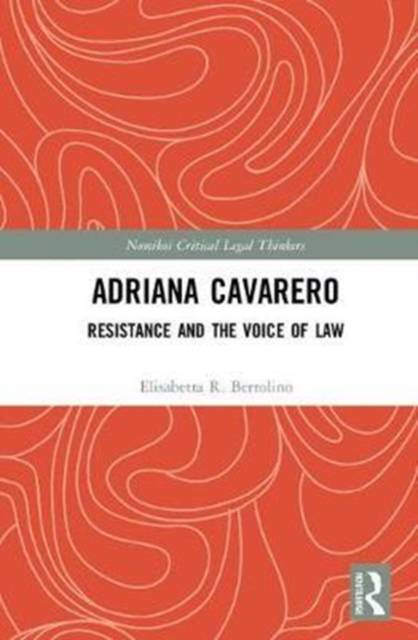
- Retrait gratuit dans votre magasin Club
- 7.000.000 titres dans notre catalogue
- Payer en toute sécurité
- Toujours un magasin près de chez vous
- Retrait gratuit dans votre magasin Club
- 7.000.0000 titres dans notre catalogue
- Payer en toute sécurité
- Toujours un magasin près de chez vous
Description
Critical legal scholars have made us aware that law is made up not only of rules but also of language. But who speaks the language of law? And can one lawfully speak in one's voice? For the Italian philosopher Adriana Cavarero, to answer these questions we must not separate who is speaking from the very act of speaking; moreover, we must recuperate the material singularity and relationality of the mouth that speaks. Drawing on Cavarero's work, this book focuses on the potentiality of the voice for resisting law's sovereign structures. For Cavarero, it is the voice that expresses one's living and unrepeatable singularity in a way that cannot be subsumed by the universalities and standards of law. The voice is essentially a material and singular passage of air and vibration that necessarily reveals one's uniqueness in relationality. Speaking discloses this uniqueness, and so one's vulnerability. It therefore leads to possibilities of resistance that, here, bring a fresh approach to longstanding legal theoretical concerns with singularity, ethics and justice.
Spécifications
Parties prenantes
- Auteur(s) :
- Editeur:
Contenu
- Nombre de pages :
- 204
- Langue:
- Anglais
- Collection :
Caractéristiques
- EAN:
- 9780815366317
- Date de parution :
- 15-12-17
- Format:
- Livre relié
- Format numérique:
- Genaaid
- Dimensions :
- 156 mm x 234 mm
- Poids :
- 467 g

Les avis
Nous publions uniquement les avis qui respectent les conditions requises. Consultez nos conditions pour les avis.






